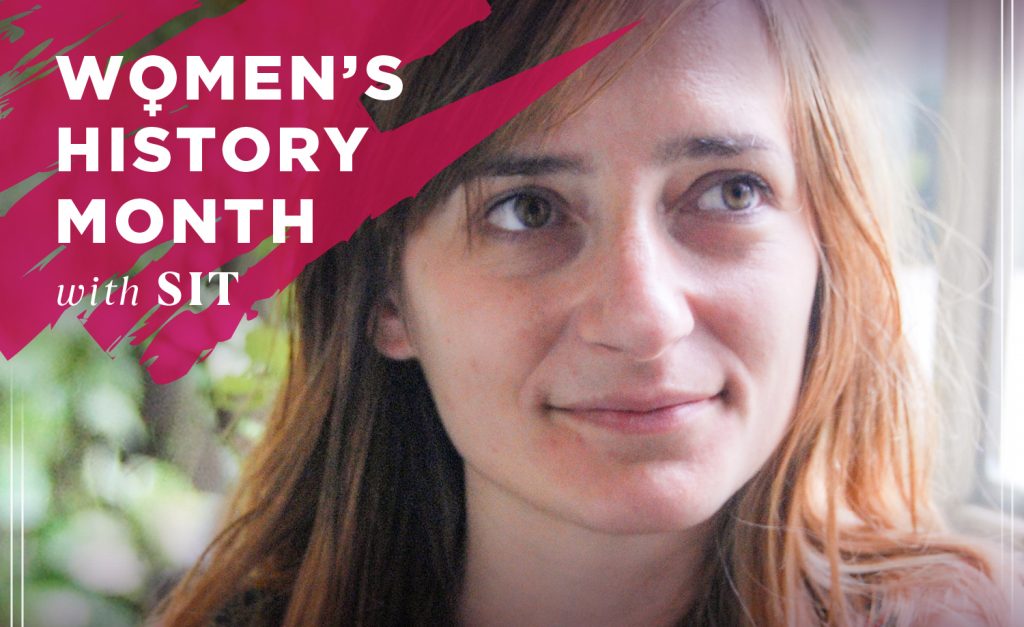Nuria Pena: Social scientist
March 31st, 2020
Argentina: Transnationalism and Comparative Development in South America
During Women's History Month, SIT is spotlighting some of our extraordinary academic and program directors across the globe who are making history today through their thinking, their words, and their actions.

What is your academic discipline, and what inspired you to pursue it?
I am social scientist; I obtained my PhD in 2018. My undergraduate and masters studies have been on political science and developments studies. My current area of expertise is in gender, development migration and the care of elderly.
At a very young age I became aware of social inequality and decided to become engaged in the struggle against it, first through my studies, then through voluntary and professional work at different NGOs. When I obtained my first job at Oxfam, I was very excited about the professionals I came across and the amazing work they were all doing in different developing projects across the world.
Nowadays, and whenever I have the chance, I still participate as a consultant in development projects. In fact, in between teaching semesters I either do evaluations of such projects or academic work. This past February, I traveled to collaborate with an Indian NGO, Rural Development Trust. I love this kind of work and to be able to discuss it with my SIT students in the classroom.
Why do you teach?
I love my students' enthusiasm and concerns to make a difference. I learn from their points of view and questions. It is great for me to have this kind of exchange with young people, and I feel very happy when my female students (and the rest!) stand up against patriarchal values in and outside the classroom.
Who is your hero and why do you admire her?
My number one hero is my mother. She lived all her life in Argentina and I suppose she did not expect to have a daughter that would live and travel to so many different places. She did her best to follow me wherever I went; coming to visit me, writing me letters and, later on, emails where she discussed and asked about the places I traveled.
She was a lawyer and injustices made her angry. Yet, she was one of the sweetest people I have met. She passed away last year and whenever I feel proud about anything I accomplish, she is the first person I think of. Last year, friends from work and I started supporting a network of migrant women living in Buenos Aires. In honor of all our mothers, we decided to call the group Mamam (Check it out if you want to collaborate: https://www.instagram.com/mamam_comidas)
What advice would you offer young women?
